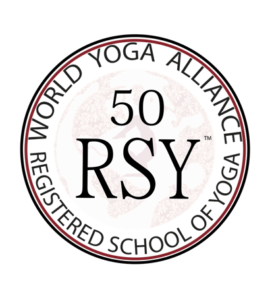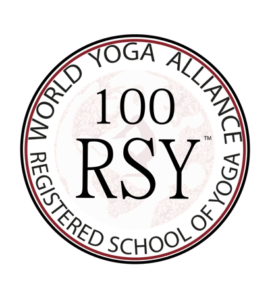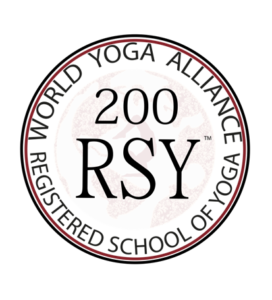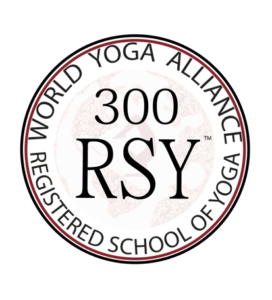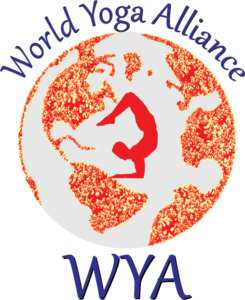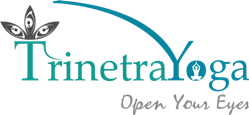Multistyle 200 Hours
MULTI-STYLE YOGA 200 HOURS
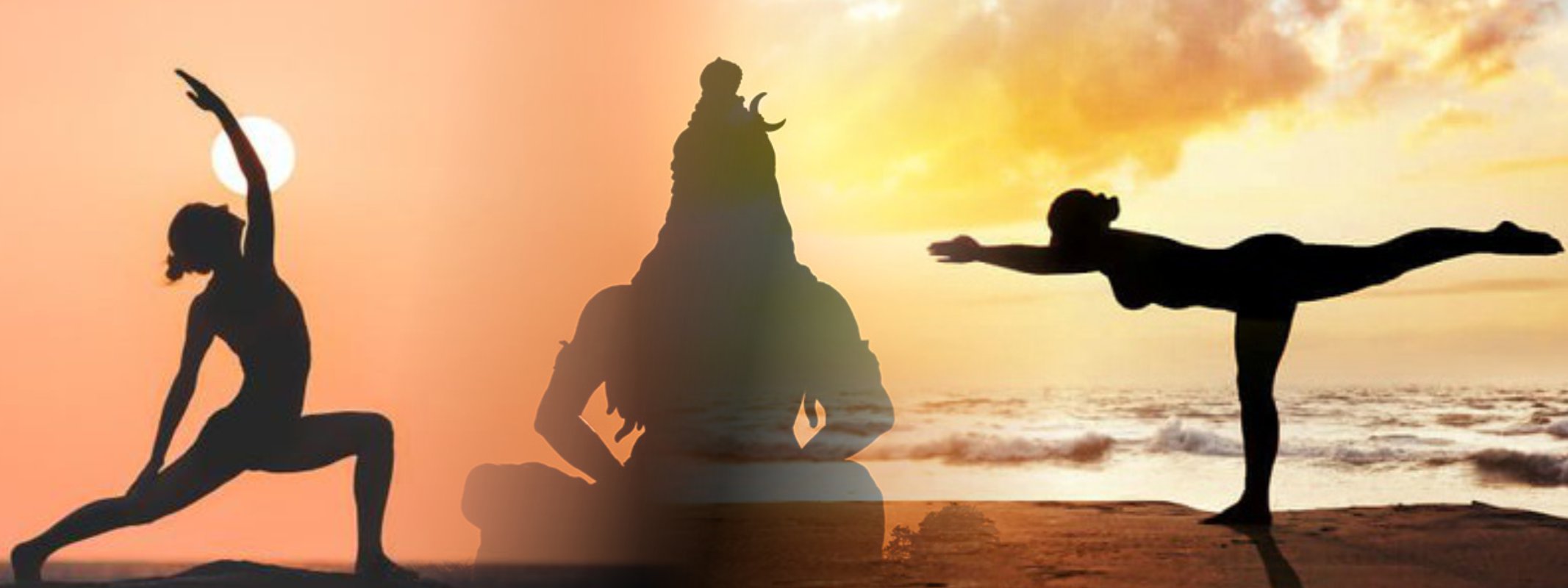
The Multistyle Yoga Teachers training program is well designed for all levels of practitioners who aspire to grow in the field of yoga. This program is designed to provide basic understanding and Nitty Gritty’s of various domains and branches of yoga like Ashtanga Vinyasa yoga , Hatha yoga , Prenatal yoga , Transformational yoga and Power-Vinyasa Flow yoga.
The prerequisite for this program will be minimum 3- 6 months of experience in practicing yoga and our 200 hours program backed by experienced Internationally teachers would bring dramatic shift and change in the practice regime of our students and provide them necessary inputs and yogic tools to come up with flying colours in international yoga arena.
Highlights Of The Program
Training Techniques & Practice
- Pranayama: Theory & practical training: Prana & Pranic Body, Abdominal/Diaphragmatic Breathing, Thorasic Breathing, Full Yogic Breathing, Alternate Nostril Breathing, Sheetali Pranayama, Sheetkari Pranayama, Bhramari Pranayama, Bhastrika Pranayama, Kapalbhati, Ujjayi Pranayama, Nadishodhanapranayama
- Kriyas: Theory and practice, benefits and contraindications. Techniques and practical tips: Jala Neti, Vaman Dauti (Kunjal Kriya), Kapalbhati, Trataka – selection
- Bandhas: Theory & practice: Moola Bandha, Udiyana Bandha, Jalandhara Bandha, Maha Bandha
- Mantras, Kirtans, and Chanting
- Mudras: Meaning and practice – (Hand & Facial Mudras)
- Meditation Techniques: Speechless Meditation (Vipassana), Dancing Meditations, Kundalini Meditation, Chakra healing meditation, Dynamic Meditation- Silent Walking in Nature, Silent Day (Individual), Yoga Nidra, Mind Sound resonance technique, AUM Technique, OM Meditation
Asana Practice:
- Warm-up exercises & Sun Salutation with variations (Ashtanga, Hatha, creative Power Vinyasa Flow)
- Vinyasa Flow: Power Vinyasa flow, Hatha & Hatha Vinyasa Flow
- Ashtanga Primary Series – LED & Mysore practice
- Hatha yoga & Yin yoga
- Yoga for health or Yoga for stress management
- Going “in” and “out” of the posture
- Vinyasa Flow: Power Vinyasa flow, Hatha & Hatha Vinyasa Flow
- Alignment techniques – basics to go into the posture
- Modifications for beginners and practitioners with injuries (many level modifications)
- Guided Asana practice & Group practice sessions
- Alignment/adjustment of Asana for groups above or Ashtanga Primary Series, Hatha, Prenatal, Transformational yoga.
- Student’s self-practice with teacher’s guidance (individual tips and feedback)
- Standing & Standing Forward Bends, Backbends, Twists, Balances, Inversions, Hip Openers, Prone postures, Supine postures, Seated forward bends, Advanced asana
- Vinyasa (Synchronising asanas with breath) – LED and observing practice
- Special classes including Pre-natal Yoga, Kids Yoga, Therapeutic yoga
- Finishing postures & Asanas to relax
- Yoga and health – benefits and contraindications of asanas
- Practical exams – Asana
Teaching Methodology :
- Art of teaching: Principles of successful teacher, Teacher’s qualities & behavior, Teaching styles, Ethical code of conduct of a teacher, Art of demonstration and observation giving instructions, feedback, class management & routine, Practice teaching sessions for students, principles of demonstration – theory and practice
- Tasks of Yoga Teacher
- Safety mechanisms – how to teach and practice without injuries
- Modes of adjustment – verbal, hands-on, props, partners
- Physical adjustment and “Rule of Touch”– rules and principles
- Partner yoga for one on one understanding
- Alignment anatomy – theory and practice with corrections
- Basics of how to build a successful Yoga model for self /students as a profession (Online and other marketing /business plans discussion )
- Discussion on Setting up yoga business
- Start & expansion plans – practical tips
- Advertising and marketing strategies
- Ethical business practices
- From beginner to advanced practitioner – yoga learning stages and its detail
- Practical workshop: Case studies by students to demonstrate understanding
Yoga Philosophy, Yoga Teacher Ethics & Food/lifestyle
- Yoga – Definitions and authentic meaning
- Historical and background of Yoga
- 4 streams of yoga (Karma, Bhakti, Jnana, Raja)
- 5 states of mind, Origin & History of Yoga,
- Ashtanga limbs, Hatha yoga & its components,
- Shat kriya,
- Bandha ,
- Nadi’s & importance,
- Pancha prana
- Panch kosha,
- Prayers – Opening and closing prayers,
- 7 Chakras and kundalini,
- Veda’s, Bhagwad Gita & Ayurveda overview,
- 3 Guna – Satvic –Rajasic –Tamasic food,
- Yoga teacher ethics,
- Yoga code of conduct
- 4 paths of yoga (Bhakti, Jnana, Karma, Raja)
- Patanjali Yoga Sutras and their interpretations (selection); 8 limbs of yoga and their explanation
- OM / AUM and its meaning
- Ethics for yoga teachers:
- Values of being a Yogi
- Yogic lifestyle: Principles of diet and essence of lifestyle
- The 5 states of mind
- The Consciousness
- The Responsibility of being a Yoga Teacher
Anatomy & Physiology:
- Human anatomy & physiology
- Basics of movement science/kinesiology
- Systems of the human body – their meaning and functions
- Nervous, Skeletal and Muscular systems and their co-relations in context of yoga practice
- Basics of yogic anatomy
- Introductory Ayurveda
- Respiratory system in the relation to yoga
- The main muscles of hatha yoga – understanding of muscle work in asana practice (theory & practice)
Practicum
- The practice of teaching under teacher’s supervision:
- Practical exam of teaching methodology
- Practices session One on one students and in Groups
- Feedback – sessions by Teachers
Program Overview
Practical Sessions Overview: These sessions equip the student with all necessary yoga tools for physical and mental development.
WEEK 1 : Ashtanga Vinyasa Yoga – Primary Series
Yoga Practical Techniques
| PRACTICAL SESSIONS | TOPICS | TOTAL HOURS |
|---|---|---|
| Training, Practice Techniques | Asana –Ashtanga Vinyasa flow, Pranayama, Meditation, Mantra, Kirtan, Kriya, Bandha – 3 locks Mahabandha, yoga stretches & exercise | 10 Hours |
| Teaching Methodology | Principles of a successful teacher, Ethical code of conduct of a teacher, Art of demonstration and observation, Alignment, adjustment of asana, Practice teaching sessions for students and Yoga food /lifestyle, Asana theory benefits and limitations | 16 Hours |
| Group sessions / Practice session | Group practice by students | 2 Hours |
| Yoga Business / strategic planning | Basics of how to build a successful Yoga model for self /students as a profession (Online and other marketing /business plans discussion ) | 2 Hours |
| Practicum | LED Class by Students – Students themselves taking classes for other students and also observing others while teaching. | 10 Hours |
| Total | 40 Hours |
Yoga Theoretical Techniques
| THEORETICAL SESSIONS | TOPICS | TOTAL HOURS |
|---|---|---|
| Yoga Philosophy / Theory | Yoga definitions Introduction, 5 states of mind, Origin History of Yoga, Ashtanga limbs, Hatha yoga its components, Shat kriya , Bandha , Nadi’s importance, Pancha prana and panch kosha, Prayers – Opening and closing prayers, 7 Chakra’s and kundalini, Veda’s, Bhagwad gita & Ayurveda overview, 3 Guna – Satvic –Rajasic –Tamasic food, Yoga teacher ethics, Yoga code of conduct | 15 Hours |
| Theory related to other techniques | Meditation Techniques – Om /Trataka/Yoga Nidra/Nadanusandhan / Chakra / Mind sound resonance techniques of meditation/ Mantra meditation | 10 Hours |
| Anatomy | Human anatomy physiology, Basics of movement science /kinesiology / Skeletal system /Connective tissue / Basics of yogic anatomy | 5 Hours |
| Total | 30 Hours |
Week-1: Daily Schedule
| DAILY SCHEDULE | MONDAY – FRIDAY | SATURDAY | SUNDAY |
|---|---|---|---|
| 7.00 to 9.00 | Ashtanga Vinyasa LED Class | Mysore Style Practice(Group Practice Session) | Holiday |
| 9.00 to 9.45 | Breakfast Break | Breakfast Break | |
| 10.00 to 11.30 | Asana theory | Self-study / Weekend | Holiday |
| 11.30 to 1.00 | Teaching methodology /Alignment –Adjustment of Asana | Self study / Weekend | Holiday |
| 1.00 to 2.00 | Lunch Break | Lunch Break | |
| 2.00 to 4.15 | Yoga Philosophy /Pranayama/ Yoga Business planning | Self-study / Weekend | Holiday |
| 4.30 to 5.30 | Anatomy | Self study / Weekend | Holiday |
| 5.30 to 6.30 | Meditation | Self study / Weekend | Holiday |
| 7.00 to 9.00 | Dinner Time | Dinner Time | |
WEEK 2 : Hatha Yoga
Yoga Practical Techniques
| PRACTICAL SESSIONS | TOPICS | TOTAL HOURS |
|---|---|---|
| Training, Practice & Techniques | Asana – Hatha flow 7 series, Pranayama, Meditation, Mantra, Kirtan, Shat Kriya, Bandha – 3 locks Mahabandha, yoga stretches & exercise, Therapeutic yoga, Lessons on Yin yoga, Introductory Pre-natal yoga, Partner Yoga, Karma Yoga assignments, Opening prayers, Closing prayers | 24 Hours |
| Teaching Methodology | Principles of a successful teacher, Ethical code of conduct of a teacher, Art of demonstration and observation, Alignment, adjustment of asana, Practice teaching sessions for students (LED Class)and Yoga food /lifestyle, Asana theory benefits and limitations, Teaching methodology | 18 Hours |
| Group sessions / Practice session | Group practice by students | 10 Hours |
| Yoga Business / strategic planning | Basics of how to build a successful Yoga model for self /students as a profession (Online and other marketing /business plans discussion ) | 1 Hours |
| Practicum | LED Class by Students – Students themselves taking classes for other students and also observing others while teaching. | 8 Hours |
| Total | 61 Hours |
Week-2: Daily Schedule
| DAILY SCHEDULE | MONDAY-FRIDAY | SATURDAY | SUNDAY |
|---|---|---|---|
| 7.00 to 9.00 | Hatha Yoga Practice session | (Group Practice Session) | Holiday |
| 9.00 to 9.45 | Karma Yoga / Breakfast Break | Breakfast Break | |
| 10.00 to 11.30 | Asana theory | Self-study / Weekend | Holiday |
| 11.30 to 1.00 | Teaching methodology /Alignment –Adjustment of Asana | Self study / Weekend | Holiday |
| 1.00 to 2.00 | Lunch Break | Lunch Break | |
| 2.00 to 4.15 | Yoga Philosophy /Pranayama/ Yoga Business planning | Self-study / Weekend | Holiday |
| 4.30 to 5.30 | Anatomy | Self study / Weekend | Holiday |
| 5.30 to 6.30 | Meditation/Prenatal/Yin yoga/Partner Yoga | Self study / Weekend | Holiday |
| 7.00 to 9.00 | Dinner Time | Dinner Time | |
WEEK 3 : Prenatal Yoga
Yoga Practical Techniques
| PRACTICAL SESSIONS | TOPICS | TOTAL HOURS |
|---|---|---|
| Training, Practice & Techniques |
Trimester specific poses Safety measures Stress management techniques Gentle Asana flow with Props -Adjustment belts, Pillow, Chair, Wall ropes, Bolster, Yoga blocks Wall support, Pranayama- Yogic Breathing, Meditation- Guided meditation –Yoga Nidra, Trataka, OM technique, AUM Meditation, Mantra chanting–For 3 Trimesters, Jalaneti Kriya, yoga stretches & exercise |
30 Hours |
| Teaching Methodology |
Principles of a successful teacher, Ethical code of conduct of a teacher, Art of demonstration and observation, Alignment, adjustment of asana, Practice teaching sessions for students (LED Class)and Yoga food /lifestyle, Asana theory benefits and limitations, Teaching methodology Relevant practices Course plan (Preconception to prenatal) Modifications n Approach Safety In practice Apprenticeship |
15 Hours |
| Practicum | LED Class by Students – Students themselves taking classes for other students and also observing others while teaching. | 15 Hours |
| Total | 60 Hours |
Yoga Theoretical Techniques
| THEORETICAL SESSIONS | TOPICS | TOTAL HOURS |
|---|---|---|
| Theory |
Introduction -Course objectives Understanding childbirth Reproductive system, Mensuration, Fertilization, Pregnancy, Birth, Post delivery Scope of interventions Yoga, Synergy with Ayurveda, Synergy with science |
10 Hours |
| Anatomy |
Female reproductive system Endocrine system n Hormones, Hormones n their function, The menstrual cycle, Fertilization Pregnancy n Yoga Preconception, 1st-trimester development, 2nd-trimester development, 3rd-trimester development, The birth: labor n delivery, Post-natal period Ayurveda Principles n basics of Ayurveda Ayurvedic physiology, Precautions in Preg. And practices of Antenatal care |
10 Hours |
| Total | 20 Hours |
Week-3: Daily Schedule
| DAILY SCHEDULE | MONDAY-FRIDAY | SATURDAY | SUNDAY |
|---|---|---|---|
| 7.00 to 9.00 | Gentle Asana flow LED Class by Masters @ Usage of props | Gentle Asana flow LED Class by Masters @ Usage of props | Holiday |
| 9.00 to 10.00 | Breakfast break | Self-study / Breakfast break | |
| 10.00 to 11.30 | Teaching methodology | Teaching methodology | Holiday |
| 11.40 to 1.00 | Anatomy | Lunch break | |
| 12.30 to 2.00 | Lunch break | Self-study / Weekend | Holiday |
| 2.00 to 3.30 | Ayurveda | Self study / Weekend | Holiday |
| 3.30 to 4.30 | Yoga Nidra / Mantra chanting/Meditation /Pranayama | ||
WEEK 4: Transformational Yoga
Yoga Practical Techniques
| PRACTICAL SESSIONS | TOPICS | TOTAL HOURS |
|---|---|---|
| Training, Practice & Techniques | Asana – (Transformational Hatha asana Flow 5 Series), Pranayama, Yoga Nidra- Meditation, Mantra and 5 elements Chanting, Kirtan, yoga stretches & exercise, | 24 Hours |
| Practicum | LED Class by Students – Students themselves taking classes for other students and also observing others while teaching. | 6 Hours |
| Total | 30 Hours |
Yoga Theoretical Techniques
| THEORETICAL SESSIONS | TOPICS | TOTAL HOURS |
|---|---|---|
| Theory related to other techniques | Transformational Theory- Physical, mental, pranic and psychic body details . Prana and panchakosha and their relation to physical body mental body, intellect body and Chakra . Symptoms of polluted body and process to heal. Transformational integral meditational education, Pranic breathing techniques, Bhakti and Raja yoga discussion, Meditation and insights of meditation, Symptoms of Kundalini awakening | 20 Hours |
| Total | 20 Hours |
Week-4: Daily Schedule
| DAILY SCHEDULE | MONDAY-FRIDAY | SATURDAY | SUNDAY |
|---|---|---|---|
| 7.00 to 9.00 | Transformational Hatha Yoga Practice session / 5 element Chanting | Transformational Hatha Yoga Practice session / 5 element Chanting | Holiday |
| 9.00 to 10.00 | Breakfast Break | Breakfast Break | |
| 10.00 to 12.30 | Transformational theory | Transformational theory | Holiday |
| 1.00 to 2.00 | Lunch Break | Lunch Break | |
| 2.30 to 3.30 | Yoga Philosophy | Self-study / Weekend | Holiday |
| 4.00 to 5.30 | Transformational Hatha Yoga Practice session –Teaching methodology | Self-study / Weekend | Holiday |
| 7.00 to 9.009.00 to 10.00 | Dinner timeChakra meditation/ 5 elements chanting | Dinner timeChakra meditation/ 5 elements chanting | |
Eligibility / Qualifying Criteria for the Course
- Practitioner with minimum 3- 6 months of experience in practicing yoga can apply
- Teachers training program cannot be considered as Holiday getaway and fun holiday
- Patients with major illness or injuries not to apply or consult doctor before applying
- Practitioners with a serious mindset to learn the YTC course to apply
Duration of the Course
- Course duration is 21 Days with a focus on syllabus mentioned
- Last day is the certification ceremony
Important Note :
We also have Short Certification courses (7 Days to 1 Month Duration) in Ayurveda and can organize the same if students are willing to opt for it
